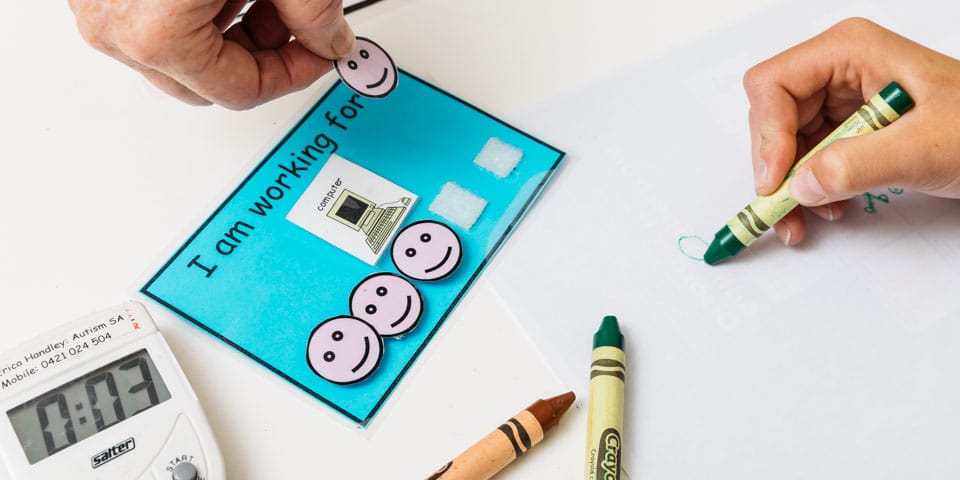Behaviour Practitioner for autistic people
What is a behaviour practitioner?
Behaviour Practitioners include a range of professionals with a broad scope of qualifications and experience in relevant disciplines, that provide support to individuals and families on positive behaviour support approaches and may develop, in partnership with the care team, a Behaviour Support Plan (BSP).
They can assist individuals and their families to identify an individual’s needs through assessment and individual planning, to develop meaningful goals and practical strategies to meet a person’s goals in their home, community, employment or educational setting.

What do behaviour practitioners do for people on the autism spectrum?
Behaviour Practitioners work closely with individuals, families, and a person’s wider care team to create plans which identify individualised strategies for people with disability that are responsive to the person’s needs, in a way that reduces the occurrence and impact of behaviours of concern.
Behaviour Practitioners provide a range of multi-disciplinary services for autistic people, these can include:
- Conducting Functional Behaviour Assessments;
- Completing Positive Behaviour Support Plans;
- Development of social and coping skills;
- Implementation of strategies to support change to improve quality of life;
- Development of routines and ways of managing sensory challenges;
- Enhancement of social inclusion;
- Case management over extended periods of time;
- Specialist support coordination;
- Counselling and emotional support;
- Facilitating self-advocacy and empowerment;
- Working in a multi/trans-disciplinary model with a range of allied health professionals to provide a holistic and integrated approach to supports.
Providing clinical advice and guidance to individuals, families and support staff, to develop strong collaborative relationships with government and non-government service providers for ongoing support.
How do behaviour practitioners provide their services?
Behaviour Practitioners generally provide their services in person, often starting with a consultation to determine the most appropriate support services.
They often recommend either a one-off or series of ongoing service sessions, including:
- Functional Behaviour Assessment;
- Data collection;
- Positive Behaviour Support Plan;
- In home/community consultations;
- One-on-one therapy;
- Group sessions;
- Multidisciplinary sessions with other allied health professionals; or
- A range of other supports and services.
Where do behaviour practitioners practice?
Behaviour Practitioners may be a sole provider or work for an agency or provider.

What training do behaviour practitioners undertake?
Behaviour Practitioners come from a range of professional backgrounds including psychology, behaviour sciences, developmental education, counsellors, health care professionals or other allied health professionals. Additional training and experience specifically in providing behaviour support is often undertaken by professionals to become a behaviour practitioner.
What does a behaviour practitioner cost?
Fees for Behaviour Practitioners vary greatly depending on the services provided, but generally range between $190 – $300 per hour.
Behaviour Practitioners is an approved service under the NDIS. For more information about the NDIS, or to find out if you may be eligible for funding assistance go to our Financial Services page.
To access positive behaviour support services, contact Autism SA.



